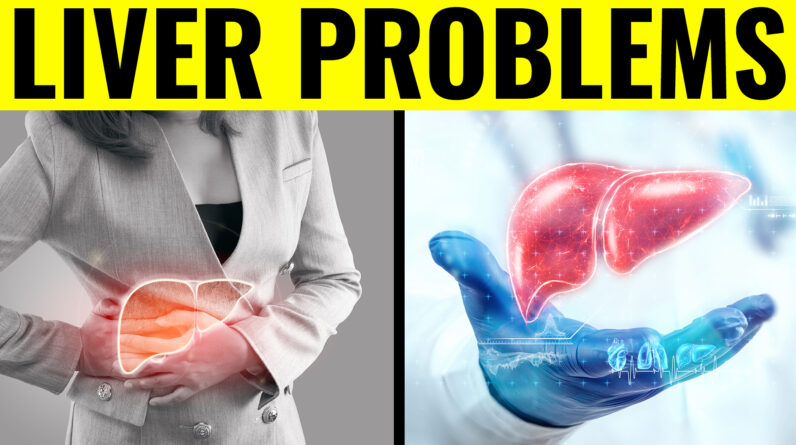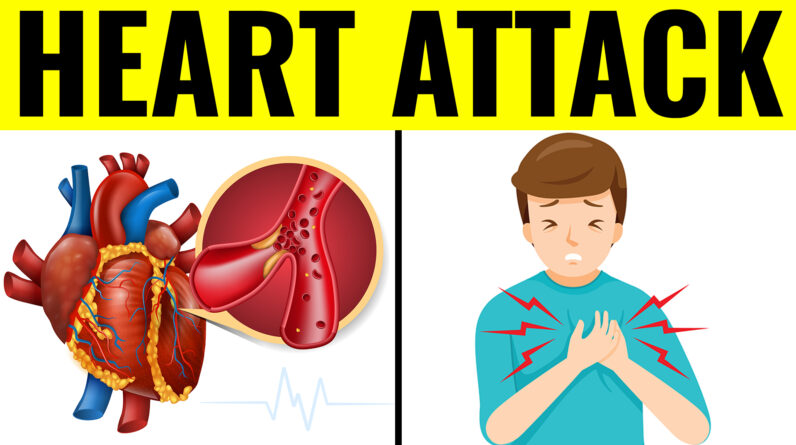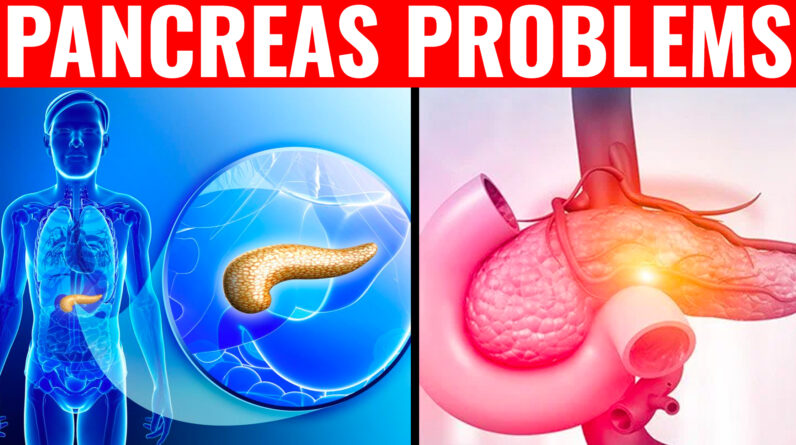
The liver is one of the hardest working organs in the body as it performs a number of different roles. From helping to digest food and converting said digested food into energy, to clotting protein production and cholesterol control, the liver takes center stage in a number of processes in the human body.
What this means is that if the liver develops any sort of impairment, it could be quite disastrous for the body, especially considering that each person has just one liver, unlike with a number of other organs.
Thankfully, though, most liver diseases can be easily managed if they are detected early. This is why it is important to know what signs to look out for in liver problems.
We’ll get to those signs in a bit, but before that, it is important that you know that there are different problems that the liver can have: genetic liver problems, hepatitis, fatty liver disease, liver cancer or tumor, cirrhosis or chronic liver damage, and liver failure.
However, all of these types typically have similar symptoms and signs associated with them. So, the signs that will be discussed in this article could be symptomatic of any of the types of liver problems. With that said, let’s look at the signs.
1. Fatigue
Research has shown that most people with a liver problem report that they frequently get tired for no reason. In fact, it happens to be the most common symptom among patients with a liver problem.
However, research is yet to show exactly what the connection is; that is, there is no solid study that has been able to perfectly determine why liver diseases cause fatigue.
That said, some researchers are saying that it could have something to do with a faulty central neurotransmission between a diseased liver and the brain. Whatever the issue might be, though, fatigue is usually associated with liver disease.
But considering that fatigue could be symptomatic of a host of other health issues, doctors typically look out for other symptoms.
2. Diarrhea
Diarrhea is usually a symptom of cirrhosis or chronic liver damage. Like with fatigue, research has not been able to determine why someone that has liver disease experiences severe diarrhea.
But it is a symptom that has been noticed among people suffering from liver cirrhosis, and sometimes, this symptom is not accompanied by other symptoms.
That said, diarrhea as a symptom of liver disease might have something to do with the fact that the liver plays a very important role in the digestion process. A lot more research needs to be done in this area to know for sure.
3. Bloody Stool and Vomit
Like with diarrhea, bloody stool is usually a symptom of chronic liver disease. At this point, the person’s health has deteriorated quite badly.
However because the deterioration process must have been gradual, something like blood in the stool might come as quite the surprise. But the damage has been happening under the surface, and bloody stool is just the manifestation.
Anyway, bloody stool resulting from liver disease is caused by bleeding from varicose veins in the stomach. Sometimes, there could also be blood in vomit which is caused by bleeding from varicose veins in the esophagus.
4. Nausea
The reason someone suffering from a liver problem will have persistent nausea is because of a build up of excess waste products in the body as a result of the liver’s inability to properly get rid of said waste products.
This is why nausea is both an early symptom of liver disease and a symptom of late stage liver disease. Basically, the nausea gets worse as your liver’s ability to eliminate waste gets worse too. And sometimes, the persistent nausea is accompanied by actual vomiting.
5. Loss of Appetite
As was mentioned earlier, the liver plays a very important role in the digestion process. So, because it can no longer perform its duties as well as it used to, the sufferer might find it difficult to work up an appetite to eat.
However, because the body needs food whether you feel like eating or not, this loss of appetite will lead to other complications including extreme weight loss and a general feeling of unwellness. Loss of appetite is typically a symptom of cirrhosis and liver cancer.
6. Jaundice
Jaundice results from an excess amount of bilirubin in the blood. Bilirubin is a yellow-orange substance, which is why it colors the skin and eyes yellow when there is too much of it.
Now, it is the liver’s duty to filter the blood of this bilirubin, keeping it at an appropriate level. Which is why if there is something wrong with the liver, jaundice is a result. Jaundice is one of those symptoms that typically only results from a problem with the liver.
7. Dark Urine
Like with jaundice, an excessive amount of bilirubin in the body is responsible for dark urine. So, because the liver is struggling to properly filter out bilirubin, the kidneys have no option but to try to excrete some of it, which is why your urine might be dark.
8. Abdominal Pain and Swelling
Abdominal pain and swelling are typically symptoms of cirrhosis of the liver. And they could happen as a result of the spleen and liver enlarging and retaining too much fluid.
In addition to that, pain in your liver might feel like a dull pain or stabbing sensation in the upper part of your abdomen.
9. Disorientation and Impaired Mental Functions
Because it is the liver’s duty to filter out waste and remove toxins, if it has a problem, there would be a significant buildup of toxins in the body.
These toxins can cause a number of issues for the organs surrounding the liver. And then they can travel up to the brain and wreck some havoc there too.
So, it is basically having toxins that should have been filtered out swim up to the brain that could cause disorientation and impaired mental functions in people suffering a kind of liver disease.
10. Easy Bruising
Among the many duties of the liver is the production of clotting proteins; that is proteins that help the blood to clot. So, when the liver is not performing as well as it should, it won’t be able to produce enough of these proteins, making it difficult for wounds to heal and making it easy for one to get bruised and to bleed.
All that said, what should you do if you think you might have a liver disease? Report to your doctor as soon as possible. This is especially important considering that the onset of liver disease is pretty gradual and might not be accompanied by specific symptoms.
So, if you are actually experiencing one or more of these symptoms, especially if there is no explanation for them, you should speak with your doctor immediately.
But is there anything that can be done to prevent liver problems? Well, nothing is particularly set in stone, but there are some lifestyle changes you can implement to reduce your chances of having liver problems. They include:
- Drinking alcohol in moderation, which means 1 drink a day for women and 2 a day for men.
- Getting vaccinated against hepatitis.
- Avoiding risky behaviors like unprotected sex, taking drugs, and sharing needles for whatever reason.
- Keeping your food safe.
- Taking precautions like wearing a mask, long sleeves, and gloves when you use aerosol sprays.
- And maintaining a healthy weight.
Taking these precautions should put you at less of a risk of developing a liver problem. However, there are some people that, for one reason or the other, are predisposed to developing a liver problem. These people include:
- People who consume a lot of alcohol.
- People who have a family history of liver disease.
- People who have type 2 diabetes.
- People who inject drugs using shared needles.
- People who have unprotected sex.
- People who are constantly exposed to certain chemicals and toxins.
- People who get their tattoos and body piercings in risky places.
- People who are obese.
If you fall into any of these categories, it is best that you try to reduce your risk factors and also consult with your doctor to determine how at risk you are, and what specific things you need to do to keep from damaging your liver. You might also be subjected to a couple of tests to be sure that damage has not already been done.







